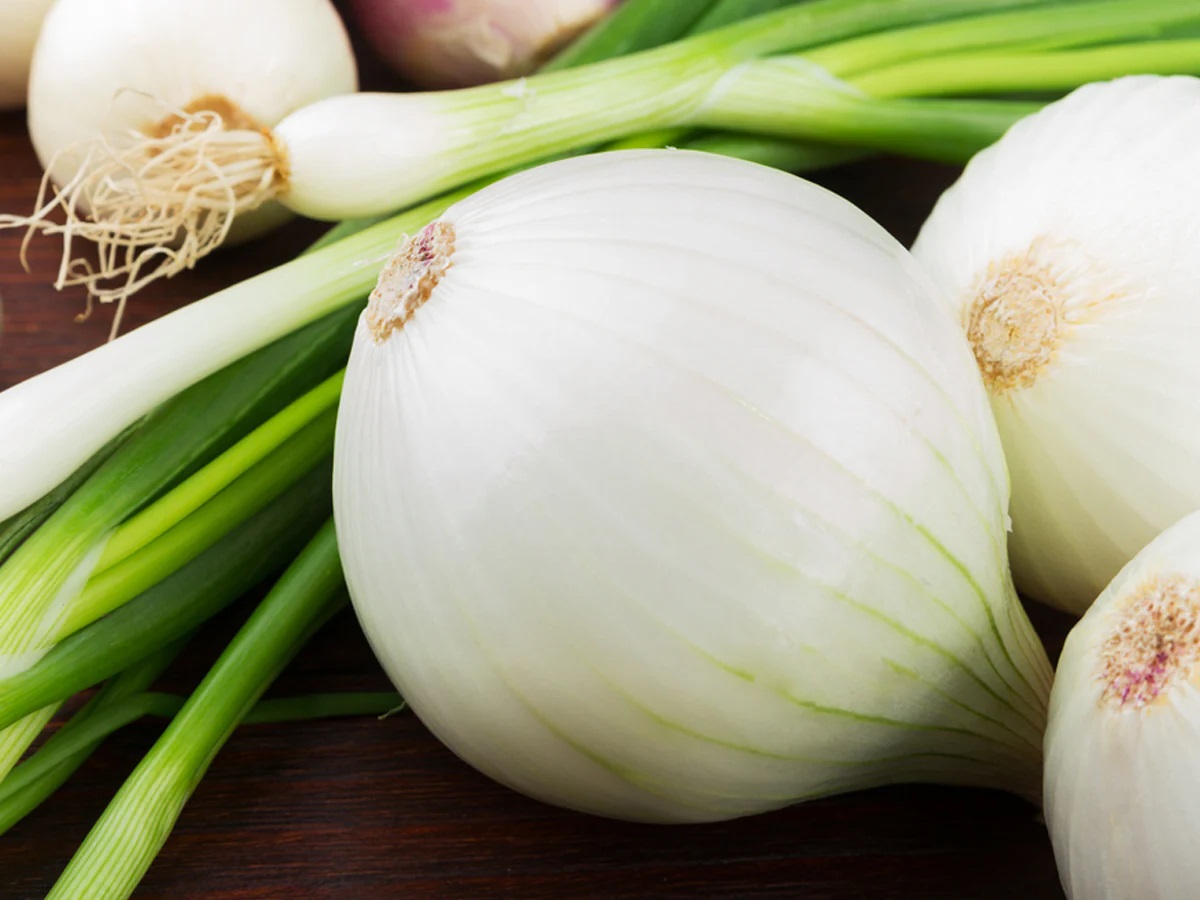
White onions are a staple in kitchens worldwide, but how much do you really know about them? These versatile veggies add a punch of flavor to countless dishes, yet their benefits and unique characteristics often go unnoticed. Did you know that white onions are not only delicious but also packed with nutrients? They can boost your immune system, improve heart health, and even help with digestion. Whether you're a seasoned chef or a home cook, understanding more about white onions can elevate your culinary game. Ready to peel back the layers and uncover some surprising facts? Let's dive into the world of white onions!
Key Takeaways:
- White onions are versatile and have a milder taste, making them perfect for salads and sandwiches. They are also rich in vitamin C and antioxidants, offering numerous health benefits.
- White onions have a fascinating history, from being revered by the ancient Egyptians to being introduced to North America by Christopher Columbus. They can be used in a variety of culinary applications and have some quirky fun facts associated with them.
What Are White Onions?
White onions are a staple in many kitchens around the world. Known for their crisp texture and slightly sweet flavor, they are versatile and can be used in a variety of dishes. Here are some interesting facts about white onions that you might not know.
-
White onions have a milder taste compared to yellow onions, making them perfect for salads and sandwiches.
-
They are often used in Mexican cuisine, particularly in salsas and guacamole, due to their subtle flavor.
-
White onions have a higher sugar content than other types of onions, which can caramelize beautifully when cooked.
Nutritional Benefits of White Onions
White onions are not just tasty; they are also packed with nutrients that can benefit your health. Let's explore some of these nutritional benefits.
-
They are low in calories, making them a great addition to any diet.
-
White onions are rich in vitamin C, which is essential for a healthy immune system.
-
They contain antioxidants that can help fight inflammation and reduce the risk of chronic diseases.
-
White onions are a good source of fiber, which aids in digestion and helps maintain a healthy gut.
Historical Facts About White Onions
White onions have a rich history that dates back thousands of years. Here are some fascinating historical facts about this humble vegetable.
-
Ancient Egyptians revered onions and even buried them with their pharaohs.
-
Onions were used as currency in the Middle Ages, highlighting their value and importance.
-
They were introduced to North America by Christopher Columbus during his voyages.
Culinary Uses of White Onions
White onions are incredibly versatile and can be used in a variety of culinary applications. Here are some popular ways to use them in your cooking.
-
They can be eaten raw in salads for a crisp, refreshing bite.
-
White onions are excellent for pickling due to their mild flavor.
-
They can be sautéed and added to soups, stews, and casseroles for added depth of flavor.
-
Grilling white onions can bring out their natural sweetness, making them a great addition to burgers and sandwiches.
Fun Facts About White Onions
White onions have some quirky and fun facts associated with them. Let's take a look at a few.
-
The largest onion ever grown weighed over 18 pounds!
-
Onions can make you cry because they release a gas called syn-Propanethial-S-oxide when cut.
-
There are over 600 different varieties of onions grown worldwide.
-
White onions can be used to create natural dyes for fabrics.
Health Benefits of White Onions
Beyond their nutritional value, white onions offer several health benefits that can improve your overall well-being.
-
They have antibacterial properties that can help fight infections.
-
White onions can help regulate blood sugar levels, making them beneficial for people with diabetes.
-
They contain compounds that can improve heart health by reducing cholesterol levels.
-
Consuming white onions can boost bone density due to their high sulfur content.
Growing White Onions
If you're interested in growing your own white onions, here are some facts to get you started.
-
White onions prefer well-drained soil and plenty of sunlight.
-
They can be grown from seeds, sets, or transplants, depending on your preference.
-
It takes about 100 to 120 days for white onions to mature from seeds to harvest.
The Final Slice
White onions aren't just kitchen staples; they're packed with nutrients and history. From their antioxidant properties to their role in ancient medicine, these humble bulbs have a lot to offer. They can help boost immunity, improve heart health, and even fight inflammation. Plus, their versatility in recipes makes them a favorite for chefs and home cooks alike.
Whether you're adding them to a salad, soup, or stir-fry, white onions bring a unique flavor and a host of health benefits. Remember, the next time you slice into one, you're not just preparing a meal; you're tapping into a rich culinary tradition. So, keep exploring and experimenting with white onions in your dishes. You'll not only enjoy their taste but also reap their many benefits.
Frequently Asked Questions
Was this page helpful?
Our commitment to delivering trustworthy and engaging content is at the heart of what we do. Each fact on our site is contributed by real users like you, bringing a wealth of diverse insights and information. To ensure the highest standards of accuracy and reliability, our dedicated editors meticulously review each submission. This process guarantees that the facts we share are not only fascinating but also credible. Trust in our commitment to quality and authenticity as you explore and learn with us.


